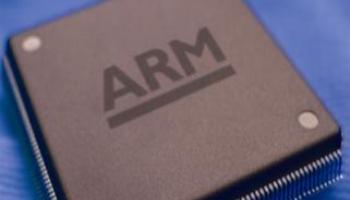

Hewlett-Packard will reportedly become the first major OEM to adopt ARM-based processors for some of its servers, a move that would increase the growing rivalry between ARM and Intel.
So said Bloomberg and the Wall Street Journal, quoting unnamed people close to the situation.
Intel, which holds more than 80 percent of the overall global chip market and 90 percent of the $9 billion (£5.6bn) worldwide server chip space, has been aggressive in trying to break into the mobile device space, particularly smartphones and tablets, the bulk of which currently are powered by ARM chips manufactured by the likes of Texas Instruments, Samsung, Qualcomm and Nvidia.
At the same time, ARM executives have been vocal about their plans to move up the ladder and into PCs and low-power servers, and a number of manufacturers – including Calxeda, Marvell Technologies and Nvidia – are developing chips for the data centre. Calxeda has a product-based event scheduled for Nov. 1, though the company has not yet said what the event will be about.
A Calxeda spokesperson declined to comment on the HP reports.
Intel continues to see strong growth in its Data Center Group, reporting 18 October that third-quarter revenue for the unit hit $2.5 billion (£1.6bn), a jump of 15 percent over the same period in 2010. HP is its largest customer.
Data centre power and cooling costs have become key concerns for enterprises, with the cost of running a system surpassing the cost of buying one. That is particularly acute in dense, hyperscale environments – like those at such places as Facebook and Google – where large numbers of small servers are running staggering amounts of tasks. Officials from ARM and its partners say it is these smaller, web-based transactions that represent the best opportunity to gain a foothold in data centres, where power efficiency is even more important than pure performance.
That’s important, given that x86 processors from Intel and Advanced Micro Devices offer greater performance than ARM processors, though they consume more power. However, software is another obstacle facing ARM-based chips. Most data centre software is designed to run on the x86 instruction set; moving applications to another instruction set would be difficult and expensive.
A move to offer ARM-based servers could be a boon to HP, according to Brian Marshall, an analyst with International Strategy and Investment Group. In a note 26 October, Marshall estimated that HP could save about $200 (£125) per ARM-based server. Assuming that HP uses ARM-based chips in 30 percent of its industry-standard servers, the move could boost the company’s operating margin and add about $220 million (£137m) in operating income in 2012, he said.
It also could give HP leverage over competitors when trying to sell servers into data centres where power consumption is a key factor, Marshall said.
HP isn’t the only top-tier server OEM to consider ARM-based chips. Forrest Norrod, vice president and general manager of Dell’s Data Center Solutions unit, told eWEEK in an interview this summer that his company is keeping an eye on developments, and usually has test systems powered by non-x86 chips running in its labs. Dell is aware of the demands from businesses for more energy-efficient technologies and wants to ensure it has the products to meet those demands, Norrod said.
However, the window of opportunity may be closing a bit for ARM-based chip manufacturers to gain significant traction in the data center, he said. A year ago, Norrod believed ARM’s presence in the data centre was almost a certainty. However, the move is taking longer than he expected, particularly in the area of software support.
“The ecosystem is not quite there yet,” Norrod said. “But it’s not insurmountable.”
At the same time, Intel and AMD both are aggressively driving up the energy efficiency of their server chips.
American space agency prepares for testing of Boeing's Starliner, to ensure it has two space…
As UK and Europe develop closer military ties, European Commission says it will invest €1.3…
Zuckerberg seeks to revive Facebook's original spirit, as Meta launches Facebook Friends tab, so users…
Notable development for Meta, after appeal against 2021 WhatsApp privacy fine is backed by advisor…
First sign of shake-up under new CEO Lip-Bu Tan? Three Intel board members confirm they…
Trump's nominee for SEC Chairman, Paul Atkins, has pledged a “rational, coherent, and principled approach”…